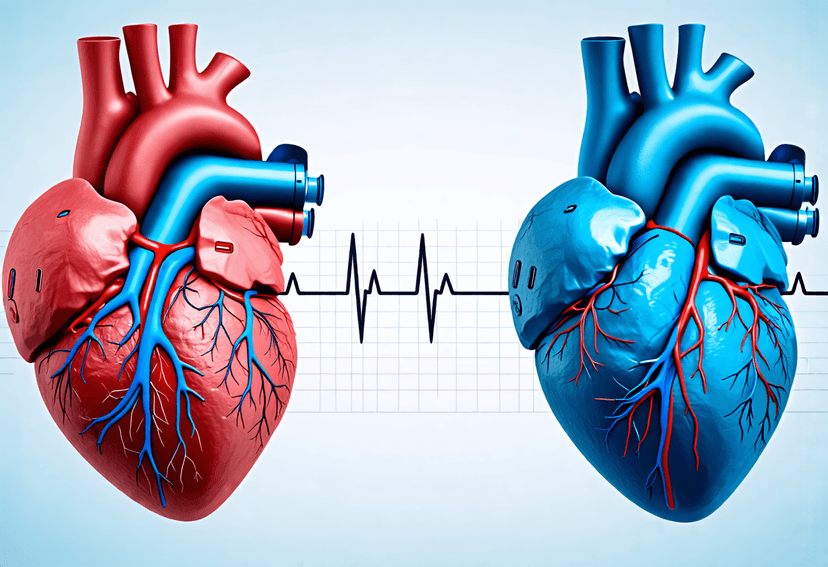
The Role of Medication in Heart Transplant Care
13 Oct, 2024
 Healthtrip
HealthtripWhen it comes to heart transplant care, medication plays a vital role in ensuring the success of the transplant and the overall health of the patient. A heart transplant is a complex and life-saving procedure that requires a multidisciplinary approach, involving a team of healthcare professionals, including cardiologists, surgeons, and pharmacists. Medication is an essential component of this care, and it's crucial to understand its role in the entire process.
The Importance of Immunosuppressive Medication
In order to prevent the body from rejecting the new heart, patients who have undergone a heart transplant must take immunosuppressive medication for the rest of their lives. These medications suppress the immune system, reducing the risk of rejection and allowing the body to accept the new heart. There are several types of immunosuppressive medications, including corticosteroids, calcineurin inhibitors, and mTOR inhibitors. Each of these medications has its own unique mechanism of action and side effect profile, and the choice of medication will depend on the individual patient's needs and medical history.
Most popular procedures in India
Managing Side Effects
While immunosuppressive medications are essential for preventing rejection, they can also have significant side effects. These can include nausea, vomiting, diarrhea, high blood pressure, and increased risk of infection. Patients must work closely with their healthcare team to manage these side effects and adjust their medication regimen as needed. In some cases, this may involve switching to a different medication or adjusting the dosage.
Wellness Treatments
Give yourself the time to relax
Lowest Prices Guaranteed!

Lowest Prices Guaranteed!
Other Medications Used in Heart Transplant Care
In addition to immunosuppressive medications, patients who have undergone a heart transplant may also take other medications to manage related health conditions. For example, they may take medications to control high blood pressure, diabetes, or high cholesterol. They may also take anticoagulant medications to prevent blood clots from forming in the new heart. In some cases, patients may also take medications to manage anxiety or depression, which are common conditions that can arise during the recovery process.
The Role of Medication in Preventing Complications
Medication plays a critical role in preventing complications that can arise after a heart transplant. For example, anticoagulant medications can help prevent blood clots from forming in the new heart, which can reduce the risk of heart attack or stroke. Similarly, medications to control high blood pressure and diabetes can help prevent damage to the new heart and reduce the risk of long-term complications.
The Importance of Medication Adherence
Medication adherence is critical for patients who have undergone a heart transplant. Taking medications as prescribed by their healthcare team can help prevent rejection, reduce the risk of complications, and ensure the long-term success of the transplant. Patients must work closely with their healthcare team to understand their medication regimen and make any necessary adjustments. This may involve keeping a medication diary, using a pill box, or setting reminders to take medications at the same time each day.
Overcoming Barriers to Medication Adherence
Despite the importance of medication adherence, many patients face barriers that can make it difficult to take their medications as prescribed. These can include forgetfulness, lack of understanding about the medication regimen, and cost or access issues. Patients must work with their healthcare team to identify and overcome these barriers, which may involve simplifying the medication regimen, providing education and support, and exploring financial assistance options.
The Future of Medication in Heart Transplant Care
Research is ongoing to develop new and more effective medications for heart transplant patients. For example, scientists are exploring the use of personalized medicine, which involves tailoring medication regimens to individual patients based on their genetic profile. They are also investigating the use of new immunosuppressive medications that may have fewer side effects and be more effective at preventing rejection. As new medications become available, patients who have undergone a heart transplant will have more options for managing their condition and improving their quality of life.
Related Blogs

Best Heart Bypass Surgery Packages on Healthtrip 2025
Explore top heart bypass surgery packages on Healthtrip for 2025.

Experience World-Class Cardiac Care at Fortis Escorts
Get the best cardiac treatment at Fortis Escorts Heart Institute

Glaucoma Treatment Options: What You Need to Know
Explore the various treatment options for glaucoma, including medication, surgery,

Pediatric Liver Transplant and Medication: What to Expect
Understand the medication process after pediatric liver transplant with Healthtrip.

Pediatric Liver Transplant and Medication: What to Expect
Understand the medication process after pediatric liver transplant with Healthtrip.

The Future of Heart Transplantation
Advancements and innovations in heart transplantation.










